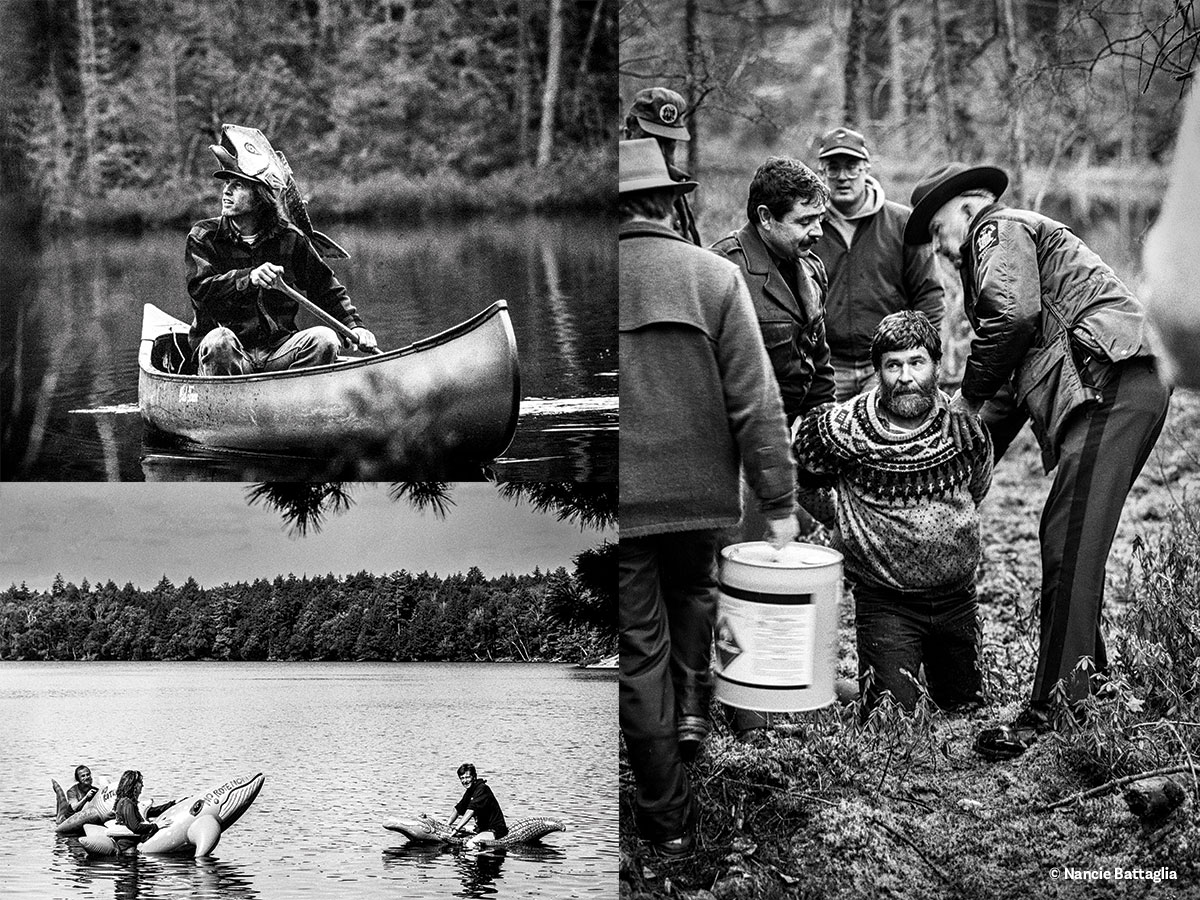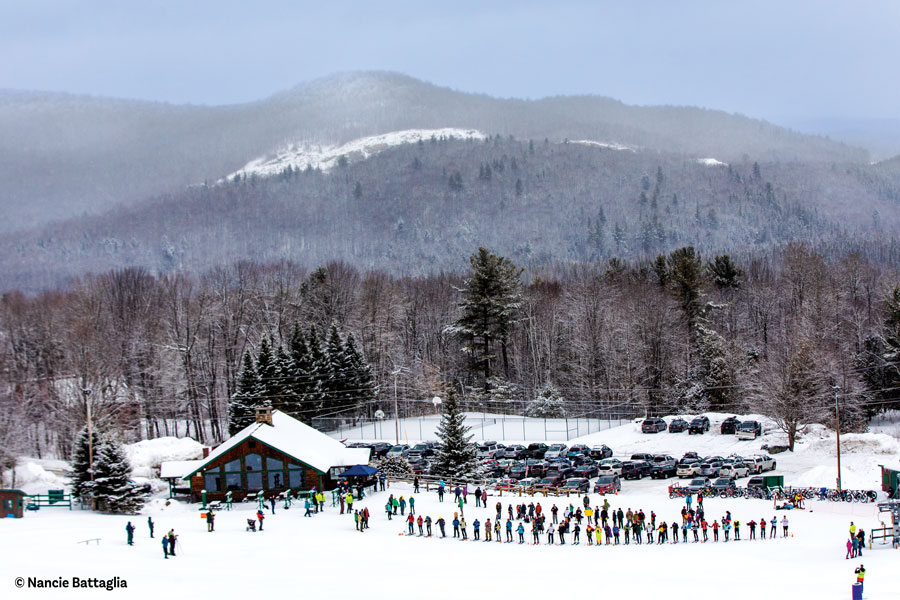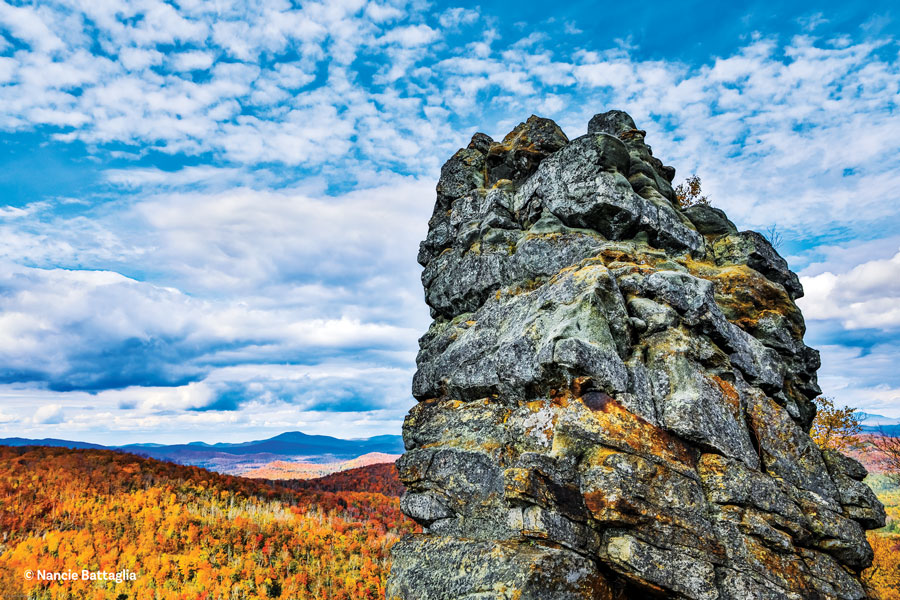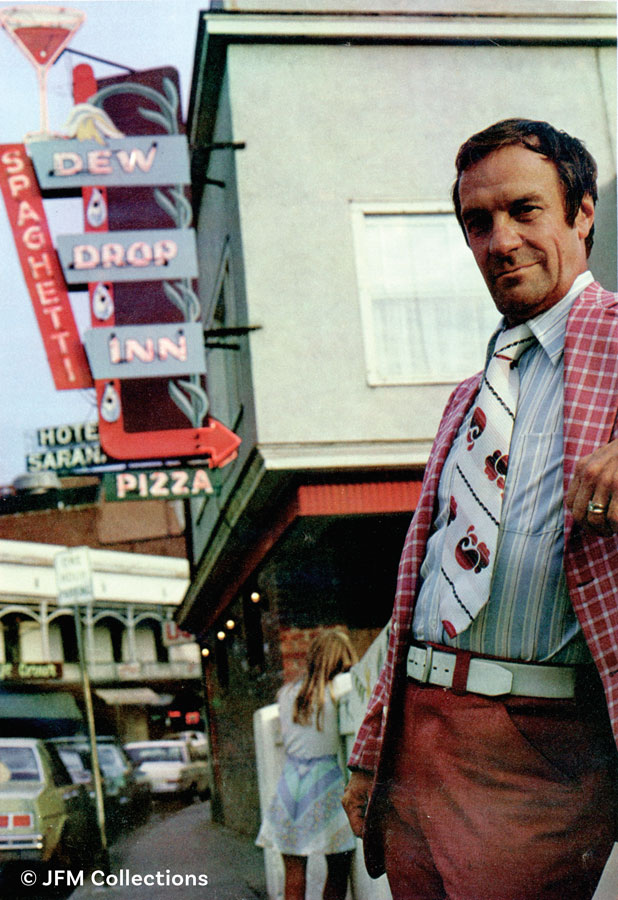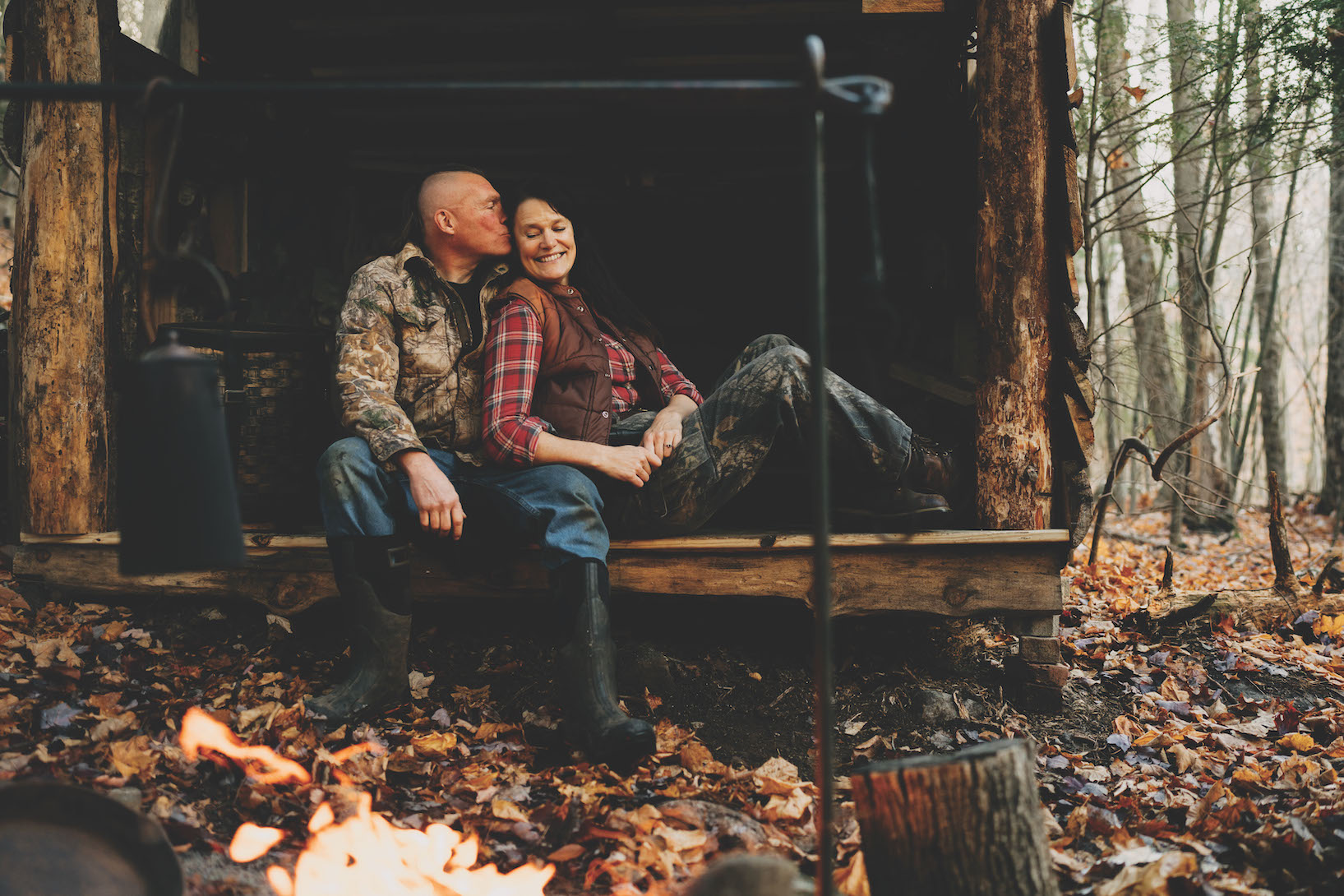“My life changed when I bought it,” says Roger Jakubowski.
The “it” he’s referring to is Camp Topridge, on Upper St. Regis Lake near Paul Smiths. And more than 30 years later there’s still plenty to say about that, like how a hardworking hot-dog vendor rose from the Atlantic City Boardwalk to the soaring great room of General Foods founder Marjorie Merriweather Post’s summer estate.
For years I’d been trying to get Roger to tell me—on the record—about his Adirondack life, about what it was like to own Topridge, one of the most iconic Great Camps. I’d visit him at Ledge Rock, in Wilmington, the motel he runs and where he lives with his family. In his Jersey accent he’d drop stories about meeting this person or that, about what had happened here or there. It was usually juicy stuff, the kind that makes a reporter want to grab her notebook. But it was always off the record.
I was first intrigued by Roger after reading a piece about him in this magazine, published more than three decades ago. James Howard Kunstler had interviewed him at Topridge and written “The Man Who Would Be King,” illuminating one of the more unusual characters I’d found in Adirondack Life’s archives. Around the time Roger bought Topridge, he purchased Big Tupper Ski Area, Crab Island in Lake Champlain (burial site of more than a hundred soldiers that had died during the War of 1812), a handful of North Country radio stations, a water bottling plant in Port Kent, and much of the shoreline of a northwestern Adirondack lake. He told Kunstler he hadn’t heard of the Adirondacks until coming here in his 40s, about his aspirations to own the entire Adirondack Park and how, if he were in charge, he’d eliminate the beavers—all of this, wrote Kunstler, “punctuated by the phrase ‘you know what I mean?,’ but spoken so rapidly as to come out more like, ‘you know whimean.’”
Roger’s big plans and boasts seemed like bluster—no doubt he liked the publicity—but the truth was, much of what he bought had been languishing on the market for years. He jumped in when he saw a deal.
Roger buying Topridge—a compound of some 60-plus buildings on an esker that straddles Upper St. Regis and Upper and Lower Spectacle Pond—relieved New York State of what it considered an albatross. After Marjorie Merriweather Post’s death in 1973, the camp was bequeathed to the state, much of its acreage designated Forever Wild. But maintenance for what had become a government conference center was too pricey, so it went for auction. The guy in the ketchup-stained apron who’d cornered the Jersey Shore’s fast-food market won with a bid of $911,000.
In 1994, after “things tightened up,” as Roger puts it, Dallas businessman Harlan Crow bought Topridge when it went into foreclosure. Stories still trickle out about which politicians have visited Crow and family—including George W. Bush—and about the construction and art installations that have replaced or expanded Post’s Great Camp, now on the National Register of Historic Places. According to Harvey H. Kaiser’s Great Camps of the Adirondacks, among the additions are boathouses; a Honeymoon Cottage surrounded by tennis courts, a zip line and water slide; a Russian Cabin with onion-dome roof modeled after Post’s Dacha, built for her third husband, an ambassador to Russia; a kids’ replica of Hagrid’s hut in the Harry Potter series; tree-house guest quarters; an ice-cream parlor; recreation field; and ornate footbridges. Bronze and stone statues and other art, including a totem pole carved in Alaska, adorn the grounds. A New York Times article speculated that Topridge “may someday be renamed Over-the-Topridge.”
This April the camp got fresh attention when ProPublica reported that “For more than two decades, [Supreme Court Justice Clarence] Thomas has accepted luxury trips virtually every year from the Dallas businessman without disclosing them,” and that he “typically spends about a week every summer” at Crow’s “private resort in the Adirondacks.”
So Topridge was topical. And who knew a thing or two about that place? I called Roger. He was willing to chat.
“I was a nobody,” he repeats. He grew up in Camden, New Jersey, into a life that didn’t involve cruising in Gar Woods and worrying over which fork goes with the salad. Where others wore suits, Roger’s uniform was that apron. He worked and worked, he says. “Being in Atlantic City meant you knew this boss and that,” such as Penthouse publisher Bob Guccione, who “helped me tremendously.”
When Roger made his money and purchased his Great Camp, “People wanted to meet me,” he says. “The place made me.” He hosted black-tie affairs, where “lobster tails were the decorations,” where he handed out white roses as guests arrived by boat or seaplane. He entertained socialites, stockbrokers, Posts’ relatives, even Marylou Whitney, who’d married Cornelius Vanderbilt Whitney. Roger recalls trying to impress her at Topridge. “She flew in with her entourage—she’d just had dinner with the Queen—and she said, ‘You don’t have to put this show on for me, Roger. If you sold everything, you’d still remain my friend.’” He went to Whitney’s Cady Hill estate in Saratoga Springs and she introduced him to her society friends. “She’d say, ‘You know Roger.’ Donald Trump was at one of her parties and he said, ‘Yeah, I know Roger.’” (Trump had recently bought Mar-a-Lago, in Palm Beach, Florida, another of Post’s fabled properties.) And then there was the week in 1987, during the 25th anniversary of Marilyn Monroe’s death, that Joe DiMaggio stayed with Roger at Topridge. The camp gave the legendary Yankee privacy from the hounding press.
That was a long time ago. “The days of playing big shot, they’re wonderful when you’re young,” says Roger. “I did it right.” But he’s over the whole “come over to the house and see how rich I am.” Now he’s 81, back in the Adirondacks after living in Montreal and starting a family. His Ledge Rock motel faces Whiteface—“the most beautiful view,” he says. He has more than a hundred acres and often blasts his music toward the mountains. (I’ve heard it from Route 86.) His motel guests are mostly repeats, he says. He owns a restaurant, bowling alley and golf course in Au Sable Forks—all properties that had been for sale for a while. These days, though, he wants to sell his stuff—“possessions are nothing but a headache.” He’s focused on raising his sons and has taught them how to spend money. He’s still working, but thinking about taking some time off.
That doesn’t mean going far, because “everything you need is right here,” he says. “You know what I mean?”

















